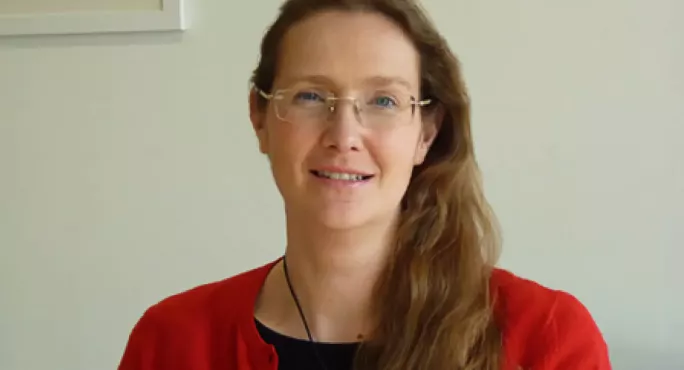DfE criticised by MPs for not giving answers on RAAC crisis

The chair of a public spending watchdog has criticised the Department for Education after MPs were unable to get detailed answers to a series of questions about the scale of the RAAC crisis in schools today.
Department for Education permanent secretary Susan Acland-Hood (pictured) and Jane Cunliffe, the chief operating officer for the Operations and Infrastructure Group, appeared before the Commons Public Accounts Committee (PAC) this afternoon to be questioned by MPs on the state of school buildings as the reinforced autoclaved aerated concrete (RAAC) crisis continues.
The session was called after the DfE changed its guidance for schools with RAAC in their buildings just days before the start of the academic year, resulting in 19 schools delaying their return and another 24 having at least some pupils learning remotely.
Ms Acland-Hood and Ms Cunliffe told the committee that updates to the official list of schools with RAAC will be given fortnightly. However, there was frustration voiced during the session that the DfE officials did not provide data in response to a number of questions from MPs today.
- Tes News podcast: A week of concrete chaos
- Revealed: Official list of Scottish RAAC-affected schools
- Concrete crisis: “Reasonable” relocation costs will be funded, schools told
Committee chair Dame Meg Hillier concluded the session by saying: “Obviously it is really important to us and to our constituents and to heads, pupils and parents out there that you keep Parliament informed about this. We’re a bit more than disappointed - disappointed would be putting it politely - that you came to us without numbers on some of these issues today.
“How do you intend to keep Parliament, this committee and, indeed, our sister [education] committee jointly informed about progress?”
Demanding answers on the RAAC crisis
Robin Walker, chair of the Commons Education Select Committee, who was appearing as guest, asked how many schools where RAAC was suspected have subsequently had it confirmed. Ms Acland-Hood said she would hold this figure for an official update.
Mr Walker also asked how many schools are still waiting for RAAC surveys, for an estimate of the timeframe for when surveys will be completed, and how long it will take to address RAAC across the schools estate.
In response, Ms Cunliffe said: “The first stage is getting schools to respond to the initial questionnaire.” She said that the number of responses from responsible bodies has increased from 95 per cent to 98 per cent.
She also told the committee that the DfE was confident that when a school responds to a survey to say it suspects it has RAAC a survey will be done in weeks.
Labour MP Ashley Dalton then pressed officials on the number of outstanding surveys. “I am not asking you to predict…how many today still need to be done?” he asked.
Ms Cunliffe told MPs they did not have a number for this question today. She also said that tens of surveys were being done every day and that “every hour the number is changing”.
She added that the DfE is doing “several hundred” surveys a week, and has already done more than 600 this year.
Officials were also unable to provide a number when asked how many temporary classrooms have been provided to affected schools by the DfE.
Ms Cunliffe said the number of temporary classrooms procured “will be provided”.
Ms Acland-Hood and Ms Cunliffe said they would write to the committee with updates on the questions.
During the session Ms Acland-Hood assured MPs that no schools would be taken out of the School Rebuilding Programme (SRP), and it is expected the remaining 100 slots will give priority to schools affected by RAAC. She added that “we could be looking at an increase” to the SRP.
Any increase needed for the SRP will be the DfE’s first priority when making bids for funding from the Treasury at the next Spending Review, the permanent secretary added.
Liberal Democrat MP Sarah Olney asked whether the DfE was confident that school leaders and responsible bodies filling in RAAC questionnaires have done it correctly.
Ms Cunliffe said the department was “concerned” about some schools that reported they had no RAAC on the questionnaire.
To address this, she said the DfE will go back and send surveyors to assess some of those negative responses to make sure the schools responded correctly.
You need a Tes subscription to read this article
Subscribe now to read this article and get other subscriber-only content:
- Unlimited access to all Tes magazine content
- Exclusive subscriber-only stories
- Award-winning email newsletters
Already a subscriber? Log in
You need a subscription to read this article
Subscribe now to read this article and get other subscriber-only content, including:
- Unlimited access to all Tes magazine content
- Exclusive subscriber-only stories
- Award-winning email newsletters
topics in this article



